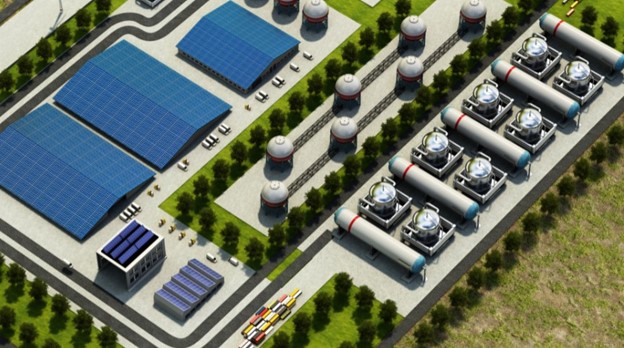Expert Witness – Hydrogen
What is a Hydrogen Expert?
Hydrogen is a versatile energy carrier that plays crucial roles in various industries, including energy production, transportation, and manufacturing. (For an excellent presentation of the types, uses and scale-up of hydrogen, please see our expert, Dr. Terry Mazanec’s, presentation at ABLC in Washington DC in April 2024). Numerous areas of expertise are involved in this field, including, but not limited to:
Chemical engineers. They can play a significant role in designing and optimizing processes for hydrogen production. This can include steam methane reforming, electrolysis, and biomass gasification, as they focus on process design, reactor engineering, and optimization of hydrogen production technologies.
Material experts. They are involved in developing materials for hydrogen storage, transportation, and utilization. They work on materials with high hydrogen storage capacity, durability, and safety characteristics. These can include metal hydrides, carbon-based materials, and composite structures.
Electrochemists. They specialize in electrolysis technologies for hydrogen production, such as proton exchange membrane (PEM) electrolysis and alkaline electrolysis. They research electrocatalysts, membrane materials, and cell designs to improve the efficiency and durability of electrolyzers.
Fuel cell engineers. They focus on developing, designing, and optimizing fuel cell systems for hydrogen-based power generation in various applications, including transportation, stationary power generation, and portable devices.
Researchers. In various fields, including chemistry, physics, and engineering, researchers contribute to advancing hydrogen technologies through fundamental research on materials, catalysts, processes, and systems.
It is also worth noting that experts often collaborate across disciplines, in many cases to advance hydrogen technologies, address technical challenges, and promote the widespread adoption of hydrogen as a clean and sustainable energy solution.
Hydrogen Litigation
Litigation involving hydrogen encompasses a wide range of legal issues, requiring expertise in the many areas and facets of hydrogen. Some of the more common types of litigation in matters involving hydrogen include the below:
Contract disputes. Examples include supply agreements, equipment purchase contracts, or technology licensing agreements. These disputes can involve issues such as breach of contract, performance obligations, payment disputes, or contract interpretation.
Accidents, injuries, or property damage. Litigation may also occur due to accidents, injuries, or property damage caused by hydrogen-related products or equipment, such as hydrogen storage tanks, fuel cells, or hydrogen-powered vehicles.
Product liability claims. Can involve allegations of design defects, manufacturing defects, inadequate warnings, or failure to meet safety standards.
Environmental, safety or other considerations. In the environmental realm, claims arise over hydrogen production, storage, or transportation, particularly in cases of spills, leaks, or emissions of hydrogen or hydrogen-related substances, and claims of pollution, contamination, regulatory violations, or damage to natural resources are also common. In addition, there are claims involving alleged violations of safety regulations or occupational health standards in hydrogen-related facilities, intellectual property claims, disputes with regulatory agencies or government entities, and insurance claims are common.
The Hydrogen Expert Witness
Hydrogen experts can provide valuable assistance in litigation by offering specialized knowledge, technical analysis, and expert testimony on hydrogen-related matters. They can conduct technical analyses and evaluations of evidence, data, and documentation related to the litigation. They can assess the performance of hydrogen systems, equipment, or processes, identify technical issues or failures, and determine causation or liability. In addition, they can assess compliance with relevant regulations, codes, and standards governing hydrogen production, storage, transportation, and utilization. They can also evaluate whether parties have followed applicable regulations and identify potential violations or non-compliance issues. They may also quantify the damages or losses resulting from incidents or accidents related to hydrogen activities and assess economic impacts, property damage, environmental remediation costs, and other financial considerations relevant to the case.
.
Conclusion
Hydrogen experts play a crucial role in litigation by providing objective, scientifically based analysis and testimony to help clarify technical issues, establish facts, and assist the court in reaching a fair and informed decision. Their expertise can also be valuable not only in trials, but also in settlement negotiations, where their objective assessments of technical issues can help facilitate the resolution of disputes.
At Lee Enterprises Consulting, our experts are the top specialists in their fields, and expert witness engagements are only a small part of their professional work. We conduct generalized training for all our experts who want to serve as expert witnesses, ensuring they understand their role in a proceeding. We also check with them for any conflicts before an agreement is accepted, and ensure they comprehend Daubert expert witness qualifications and the relationship they will have with the hiring attorneys.
About Lee Enterprises Consulting
Lee Enterprises Consulting has over 180 experts that can help navigate your bioeconomy needs. If you need assistance with your hydrogen project(s), please contact us.
Have some questions?
Not sure where to start?
Let's start a conversation. We're here to help you navigate
the bioeconomy with confidence.
